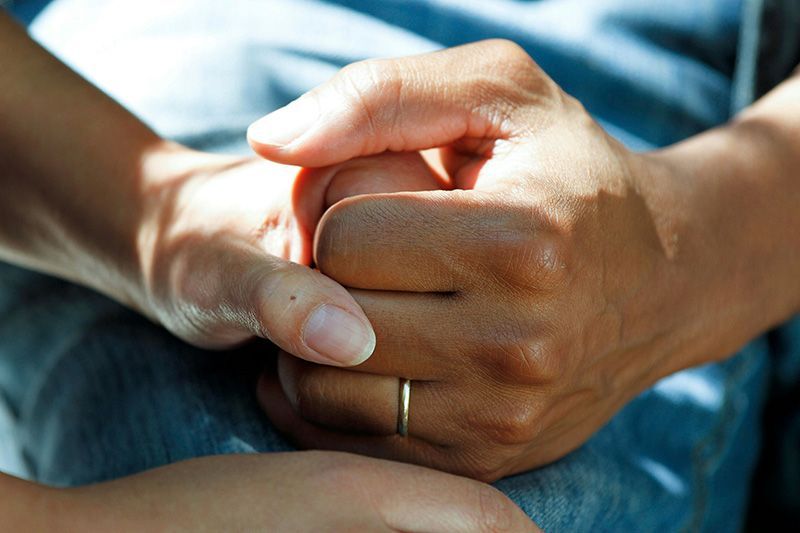The Grieving Process
The Grieving Process
Grief Support Content Disclaimer
The information we are providing here has been vetted to bring you some of the most up to date research and thought in the sphere of grief. We offer it here as a source of support and guidance for those who are grieving or supporting someone who is.
The materials and resources we provide are for general information and support purposes only. This information is not intended to replace professional medical or psychological diagnosis and/or treatment. We strongly encourage anyone struggling with mental health issues following a death to seek the help of a professional.
Our grief support section does link to other sites and resources for your convenience. We cannot be held responsible for the content provided there.
You may have heard of The Five Stages of Grief (Elizabeth Kubler-Ross, On Death & Dying, 1969), it is only one grief model (although arguably the most famous) and there are others which have been developed since the late sixties. Most people have heard about these stages, and we want to give you a little more insight into them. The Stages were originally intended for people who were approaching death, not the living people left behind. The stages from this model are denial, anger, bargaining, depression, and acceptance, but not everyone experiences all five stages and not in any special order. You may also find you experience any of these stages multiple times.
At the beginning in the time immediately following a death (in what some people call early or acute grief), you may feel a sense of detachment, shock, or numbness, often labeled as denial. You may even wonder why you are not more upset over your loss. This feeling of disconnection is a survival response. It is simply your brain's way of protecting you, so you may continue to function on a basic level while under extreme stress. Denial is a tool that unconsciously enables you to accomplish tasks that are necessary to carry on with your life in the days immediately following your loss.
Another one of the famous stages is anger which can provide a way out of the initial numbness of grief. You may find yourself angry at the doctors, your family, the loved one who died, at God, or a random person who cuts you off in traffic. During life after loss many feelings will come and go, anger is simply one of them. Some do not experience anger at all. We want you to be aware that feeling angry is a normal part of the grieving process for some people. Please do not be alarmed if you feel angry. Remember you may not feel angry at all and that is OK too.
Before and after a loss, you may feel like you would have done anything if only your loved one could have been spared. Many of us who have experienced a loss might start thinking thoughts that begin like, “If only I had done…” and “what if he had listened to me…”. Some people might try to label that as the bargaining stage. Guilt often accompanies bargaining. You may wonder if you could have done anything differently so that your loved one might still be alive. You may try to second-guess the doctors, fate, your loved one’s choices, or yourself. These types of thoughts may keep you at a distance from your grief and loss to avoid the present pain.
In the original Five Stages of Grief depression is one stage. We have learned a lot about mental health since then. There is a difference between clinical depression and what is considered a normal grief response. Depression is a cause for concern. Below we highlight some of the differences between the two.
Normal grief looks like these traits:
- Responds to comfort & support.
- Capable of being openly angry.
- Relate depressed feelings to the loss.
- Can experience moments of enjoyment.
- May have transient physical complaints.
- Exhibits sadness & emptiness.
- Expresses guilt over specific aspects of loss.
- Temporary loss of self-esteem.
Depression looks like this:
- Does NOT accept support.
- Irritable but does not directly express.
- Does not relate to specific event.
- All pervading gloom.
- Hopelessness & chronic emptiness.
- Chronic physical complaints.
- Generalized feelings of guilt.
- Ongoing loss of self-esteem.
If you believe you might have depression, we encourage you to seek help from a professional who works in the field of mental health. The loss of a loved one can activate depression, this is why we bring it to your attention.
Other potential feelings that may surface as you try to adjust to the loss may include emptiness, sadness, loneliness, tenderness, sentimentalism, edginess, fear, panic, anxiety, purposelessness among many others. All of these and many more feelings are appropriate responses to a great loss. When a loss fully settles into your life, and you realize that your loved one is not coming back, feelings of deep sadness are normal.
And finally, the stage of acceptance, eventually most people who experience grief after a death come to terms with the loss and integrate it into their day to day as they rebuild their lives. The loss becomes part of your life story, you can learn to carry this with you. The loss will always be there and as you continue to live your life you may notice grief does not consume your life in the same way it did in the beginning. You may notice an increased peace and even feel hopeful again. If you are reading this in the early stages of grief, we know this will seem out of reach, even impossible, and you may not even want to glimpse a new life because it hurts too much. That is ok.
How long am I going to feel this way?
Every person is different, and so is their grief. Each person will follow a different path toward healing because we are all unique and so are our relationships. There is no right or wrong amount of time to complete the grieving process. If at any point you are worried about how long it is taking, consider working with a therapist or a grief support group to help guide you.
Formerly Complicated Grief, Prolonged Grief Disorder
Please keep in mind the duration of the mourning process can also be influenced by your relationship to the deceased, the amount of support you receive, and other factors.
Sometimes the healing process may become disrupted or delayed if other events or traumatic losses have previously occurred in a person’s life. This may be especially true if the other loss is relatively recent or has never been fully processed. This grief experience used to be known as “complicated grief”, although we would argue all grief is complicated. In the field of mental health Prolonged Grief Disorder has replaced Complicated Grief. Prolonged Grief Disorder basically means an intense and persistent grief that impacts a person’s ability to re-engage with daily life. Grief that is disabling for more than a year after the death is the timeframe and description that causes loved ones and professionals to become concerned. People who are dealing with this type of grief may benefit from working with professionals who are trained in dealing with complex grief issues. If you need help finding a specialist let us know and we can help you find someone who can provide tools and support.




